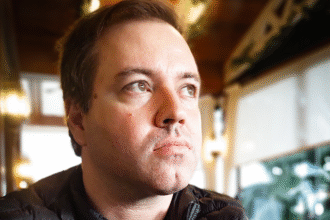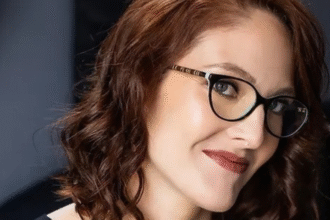With a narrative that delves into the complexities of relationships and personal choices, “Amor Errado” , by author Cristina Valori , offers a deep reflection on the dilemmas faced by protagonist Mia Andrade. Away from family and friends, Mia finds herself faced with the return of an old flame, André, now married to her older sister and with a daughter. When faced with the proposal of being a surrogate mother for her sister, Mia finds herself at a crossroads between her personal desires and family expectations. Amid family conflicts, personal dramas and questions about her own choices, the protagonist is led to reevaluate her priorities and seek a new path for her life. With an engaging narrative and relevant themes such as family conflict, forbidden romance and overcoming, “Amor Errado” invites the reader to reflect on the challenges and possibilities of starting over, even when past loves seem to have gone wrong.
“Amor Errado” explores deep themes such as pain, guilt and remorse in the life of protagonist Mia. How do these elements influence the narrative and Mia’s journey?
In addition to influencing, these elements direct Mia’s life. At a certain point in the story (after a tragic event), they become part of her personality. A routine established with a lot of guilt and remorse.
The plot involves personal and family dilemmas, including Mia’s proposal to be a surrogate mother for her sister, Pilar. How do these conflicts impact the development of the story?
These conflicts shape the plot, after all Mia wonders whether she will be able to fulfill the role that does not belong to her. If you accept your sister’s request, will it ease the guilt you feel? If she is worthy of such a privilege?
You address the theme of the return of an old flame (André) in Mia’s life. How does this reunion shape the protagonist and her perspectives regarding love?
Her perspectives are always nostalgic. In fact, she sees her love choices negatively. You remain stuck in the “if” for a long time and end up forgetting to live in the present. In addition to not understanding that, in fact, there never were wrong choices.
The book touches on issues of marriage and motherhood, suggesting that these were not Mia’s original plans. How do these reflections on relationships reflect the contemporary challenges faced by women?
Mia never offended or raised a flag about her decision not to be a mother or get married. In fact, the plot addresses the topic in a free and coherent way. Mia has always cared about herself and (a bit of a spoiler here) when life takes her in another direction, the decision was thought out and made according to her own convictions.
The story suggests that Mia left dreams and goals tied to an unresolved past. How does she evolve throughout the novel in terms of self-knowledge and acceptance?
Mia left her life very attached to her family, to her past mistakes and insisting on those failures. This self-knowledge and acceptance happens after she manages to free herself from invisible bonds.

In the work, you address the conflict between right and wrong. How does this ethical dilemma unfold in the narrative, and what message does it intend to convey about new beginnings?
We cannot live in the past, nor can we live someone else’s life. Regardless of whether it is a son, mother, husband, sister… It doesn’t matter the relationship. We have to share our lives with this person, so that self-knowledge can happen.
Qualis Editora has published works that highlight strong and complex female characters. How does Mia contribute to this scenario, and how does she stand out as a protagonist?
I consider Mia to be a strong and complex character. She has an interesting life, with a great career in education, but when she realizes that happiness overrides guilt, she cancels herself. All the self-knowledge gained over the years crumbles.
The theme of romance between an older woman and a younger man is explored in the plot. How is this approached, and what nuances does this relationship bring to the story?
The age difference in the plot was handled very sensibly. Stereotypes and childishness were left aside, both by Mia and Isaac. Even though he was younger, his support and the maturity molded for the character brought lightness to Mia, as well as new perspectives.
The work is especially suitable for a female audience. How does the book connect with the experiences and challenges faced by women in contemporary times?
Because of her sister, Mia experiences some of the conflicts that involve motherhood. Time for the kids? How to create them? Changing bodies? Routines? To be a mother or not? Presence in your children’s lives? Issues that are present in women’s daily lives.
At the same time that Mia is a proactive woman, with a good job and financial independence, she cannot escape the questions that make up a society dominated by old concepts.
When dealing with themes such as starting over and overcoming, how does “Amor Errado” offer valuable insights to readers about the different ways to rebuild life after love challenges?
Perhaps the main message of “Amor Errado” is the certainty that the most important thing for us is understanding two questions: “where are you?” and “where do you want to be?” Mia did not see her life from the right perspective, missing out on romantic and happy opportunities and experiences. Living through the eyes of her sister and family made it impossible for her to choose good choices and not know herself.
Follow Cristina Valori on Instagram





